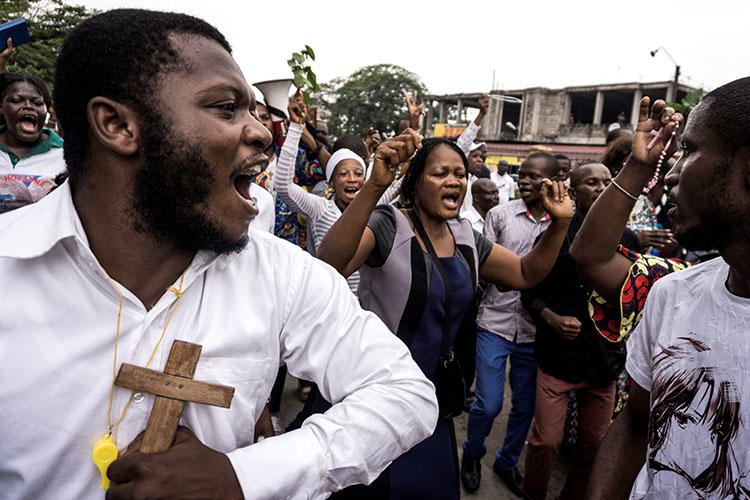Security forces in the Democratic Republic of the Congo on December 31, 2017, harassed at least three journalists who were reporting on protests in the capital, Kinshasa, over President Joseph Kabila’s refusal to stand down when his second five-year term in office expired in 2016 and his refusal to hold elections, according to local journalists and media reports.
Edmon Izula, a reporter for the privately owned station Radio Television Satellite 1 (RTVS1), told CPJ he was reporting on a planned protest at Saint Francis de Sales church in Kinshasa when a member of the state security forces pointed a gun in his direction and then hit him repeatedly with the rifle.
Izula said that he showed the security forces his press accreditation and said that he was a journalist, but that the security officer assaulted him and seized his phone. “He started hitting me [with a gun], I did not reciprocate. He was aiming at my face and I was trying my best to protect myself,” Izula said.
In Kintambo, less than a kilometer from the Saint Francis de Sales church, security forces briefly detained freelancer Eliezer Ntambwe, and his camera operator, Guelord Muya, while they were reporting on the anti-Kabila protests, according to Ntambwe and a New York Times report.
The journalist said that he and Muya were released the same day without charge.
Ntambwe told CPJ that security forces seized his camera and as of March 16, 2018, the equipment had not been returned.
When asked for comment, Colonel Pierre-Rombaut Mwanamputu the spokesperson for the national police, told CPJ it was difficult for security forces to make the distinction between journalists and protesters.
“Everyone can wear a press jacket. It is not a sign that someone is a journalist,” Mwanamputu said, referring to jackets with the word “Press” written on the front and back that some members of the media wear.
